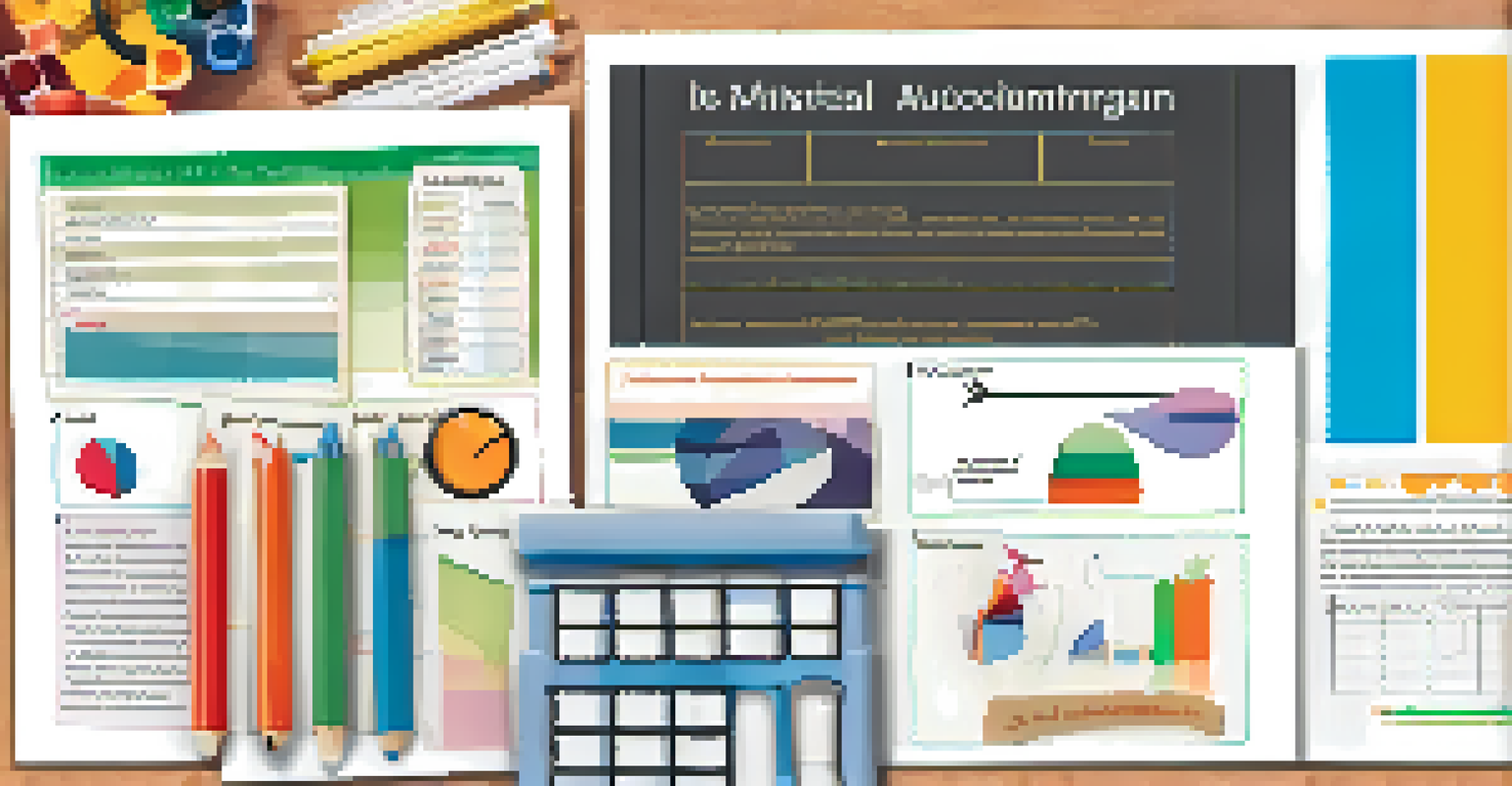Tennessee's Special Education Programs Overview

Understanding Special Education in Tennessee
Special education in Tennessee is designed to support students with disabilities, ensuring they receive a free and appropriate education. This program encompasses a range of services tailored to meet individual needs, from learning disabilities to physical impairments. The goal is to create an inclusive environment where all students can thrive academically and socially.
Education is the most powerful weapon which you can use to change the world.
Tennessee follows the guidelines set by the Individuals with Disabilities Education Act (IDEA), which mandates that schools provide specific services to eligible students. This includes individualized education programs (IEPs) that outline specific goals and the necessary support to achieve them. By adhering to these regulations, Tennessee aims to ensure that every child has access to meaningful education.
Parents and educators work collaboratively to identify the unique needs of each student. The process often involves assessments, meetings, and ongoing communication to create a supportive learning atmosphere. This partnership is crucial, as it empowers families and helps educators understand how to best support their students.
Eligibility Criteria for Special Education Services
To qualify for special education services in Tennessee, students must meet specific eligibility criteria defined by federal and state regulations. This typically includes having one or more disabilities that adversely affect their educational performance. Examples of such disabilities include autism, emotional disturbance, and intellectual disabilities.

The evaluation process is a critical step in determining eligibility. It involves comprehensive assessments conducted by qualified professionals who gather information from various sources, including parents, teachers, and medical experts. This thorough approach ensures that all factors influencing a student's learning are considered.
Support for Students with Disabilities
Tennessee's special education program provides tailored services to ensure students with disabilities receive a free and appropriate education.
Once eligibility is established, the focus shifts to creating an individualized education program (IEP). This document serves as a roadmap for the student's educational journey, detailing specific goals, services, and accommodations needed to support their success in the classroom.
Types of Services Offered in Tennessee's Special Education
Tennessee offers a diverse array of services within its special education framework to cater to various needs. These services can include resource rooms, special classrooms, and inclusion models where students learn alongside their peers. The aim is to provide the right environment for each student to flourish.
The only way to do great work is to love what you do.
Additionally, support services such as speech therapy, occupational therapy, and counseling are available to address specific challenges. These services are crucial for helping students develop the skills they need to succeed academically and socially. The flexibility in service provision allows schools to adapt to the unique requirements of each student.
Collaboration with families is essential in determining the most effective services. By maintaining open lines of communication, educators can adjust strategies and provide the necessary support to ensure that each child reaches their potential.
The Role of Individualized Education Programs (IEPs)
Individualized Education Programs (IEPs) are at the heart of Tennessee's special education services. Each IEP is tailored to the individual needs of the student, outlining specific educational goals and the resources required to achieve them. This personalized approach ensures that students receive the support necessary for their unique learning styles and challenges.
The IEP development process involves collaboration between parents, teachers, and specialists. This teamwork helps create a comprehensive plan that addresses not only academic needs but also social and emotional well-being. Regular reviews of the IEP are conducted to ensure that the goals remain relevant and achievable.
Importance of Individualized Education
Individualized Education Programs (IEPs) are crucial in outlining specific goals and resources for each student, promoting personalized support.
In Tennessee, IEPs are legally binding documents, ensuring that schools fulfill their obligations to provide the outlined services. This legal framework holds schools accountable and empowers families to advocate for their children's educational rights.
Transition Services for Special Education Students
Transition services are a vital component of Tennessee's special education programs, focusing on preparing students for life after school. These services assist students in developing skills for post-secondary education, employment, and independent living. The transition planning process begins as early as age 14, ensuring that students are well-prepared for their future.
Collaboration between schools, families, and community agencies plays a crucial role in successful transitions. By connecting students with resources and opportunities, they can explore various paths, whether it be vocational training, college, or independent living skills. This holistic approach fosters confidence and self-sufficiency in students as they step into adulthood.
Regular assessments and updates to transition plans are essential for adapting to changing needs and goals. This ongoing support helps students navigate the challenges of transitioning from school to the real world, ultimately enhancing their chances for success.
Professional Development for Educators in Special Education
Professional development for educators is a cornerstone of effective special education programs in Tennessee. Training opportunities are provided to teachers and staff, equipping them with the latest strategies and tools to support students with disabilities. This commitment to ongoing learning ensures that educators can adapt to the evolving needs of their students.
Workshops, seminars, and collaborative learning sessions allow educators to share best practices and learn from one another. By fostering a culture of continuous improvement, Tennessee aims to enhance the quality of education for all students, particularly those with special needs. This collective effort helps create a more inclusive and responsive educational environment.
Parental Involvement is Key
Active parental participation in the special education process empowers families to advocate for their children's unique educational needs.
Additionally, state and local education agencies often provide resources and support for educators to implement effective teaching strategies. By investing in professional development, Tennessee is prioritizing the success of both educators and students in the special education landscape.
Parental Involvement in Special Education Decisions
Parental involvement is crucial in the special education process, ensuring that families have a voice in their child's education. In Tennessee, parents are considered essential partners in developing and implementing IEPs. Their insights and experiences provide valuable context that can shape the educational strategies put in place for their children.
Engaging parents through meetings, workshops, and informational sessions helps them understand the special education process and their rights. This empowerment enables families to advocate effectively for their children's needs and preferences. The collaborative approach fosters trust and ensures that the educational experience is tailored to each student's unique requirements.

Moreover, consistent communication between schools and families is fundamental in creating a supportive network. By working together, parents and educators can navigate challenges and celebrate successes, ultimately enhancing the educational journey for students with disabilities.